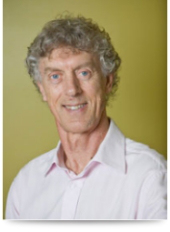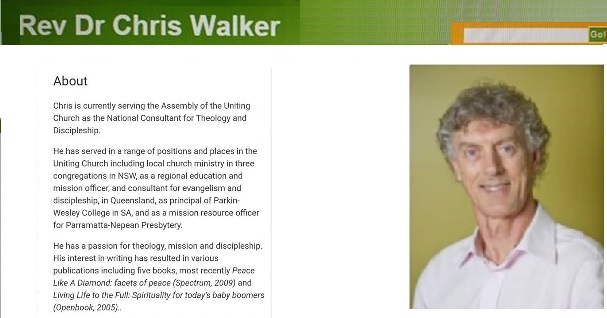with Rev Dr Chris Walker

What next after COVID-19?
In NSW and other states of Australia, except for Victoria, we are seeing a relaxation of restrictions to the point of getting close to life as ‘normal’ though what the ‘new normal’ will look like is yet to be clear. Unfortunately, Victoria has seen a new outbreak of cases due to people not taking adequate precautions. It means that Victorians are not welcome in other states, and stricter measures have had to be introduced again in some areas. What will life look like as we move out of the pandemic in Australia? What hopes do we have?
First, it is important to recognize that the pandemic is far from over. While Europe is now, like Australia, moving towards life as ‘normal’ that is not the case elsewhere. The USA is continuing to have thousands of new cases and many deaths. While New York is no longer being as affected, the southern states of Texas, Arizona and Florida are seeing a significant increase in cases. The USA has responded poorly to the pandemic. Their emphasis on individual rights has come against them when the pandemic requires people to be community minded and socially responsible. The US President has not helped in this health crisis being primarily concerned about the economy. Brazil has also had an unhelpful President and is seeing a rapid increase in deaths. Other nations such as Mexico, India and Indonesia are also seeing increases which are not likely to improve for some time. The World Health Organization is rightly concerned.
Nevertheless, here in most of Australia people can gather and move about in ways that were not possible a few weeks ago. We have shops open, cars on the road, and football matches taking place now with some crowds. People can go to gyms and restaurants. Churches are still waiting to open given the continued need to have social distancing.
So, what might the ‘new normal’ look like? Families are no longer having to stay in their homes. Playgrounds can be used. Schools are open again and universities will have classes in the second half of the year. The need to make use of online learning had the danger of leaving the poorer school children behind for two reasons: they might not have ready access to computers and the parents may well have not been able to be of much assistance. University classes, however, are likely to need to provide online learning to a greater degree than before as students have become more used to doing so.
Work will be different for many people. First it will take some time for many people now out of work to find work again as the economy slowly picks up. For others the benefits of being able to work from home, such as not having to spend hours in travel time, will be something they will want to continue. Even the make-up of the workforce could change as Australia recognizes that it has been overly dependent on mining and China. A resurgence of manufacturing would be desirable. Greater appreciation for those who provide basic services such as health care and cleaning should be given.
Governmental policy has resulted in the allocating of vast amounts of money in order to keep people in work and keep the economy going. This of course means that national debt will take years to be reduced. But it is also an opportunity to do some positive things. Spending on infrastructure is not only desirable for what it will provide but will also mean many jobs. There is also the opportunity to move away from dependence on fossil fuels and expand the renewable energy sector. This would also have the benefit of providing more jobs as well as helping reduce the global warming effects of using fossil fuels. While the pandemic has focused people’s minds due to its critical nature, climate change is also critical, and action needs to be taken now. Clear signs are present such as the melting of arctic ice and more extreme weather events.
The restrictions due to the pandemic were an opportunity to reflect on what is important in life. Let me suggest the following drawing on my Christian perspective. Relationships are important. Purposeful activities are important. So too are safety and cleanliness. Nature is important not only for humans but for all creatures.
If this is the case, then the ‘new normal’ should highlight them. Previously the dominant value was the economy. I am not against the economy but the triple bottom line of social, economy and environment (people, profit and planet) should each be given consideration. The ‘black lives matter’ protests in the USA and around the world called for black people to be treated fairly and equally. In Australia the protests pointed out the continuing over-representation of indigenous people in jails and deaths in custody. We can do better. After the devastating bush fires, we know that not only were they catastrophic for many people, they also severely burnt huge areas and caused the death of a billion creatures. Because the fires were so strong recovery will be slow and some creatures may never return. We need to consciously care for our native fauna and flora and ensure that creatures do have enough habitat to thrive.
As we move out of the pandemic, all people need to be included and valued. More careful interactions between people should become the norm. This of course means that sexual harassment and domestic violence are always inappropriate. People should recognize the desirability not only of personal hygiene but also be socially responsible so that rubbish is dealt with better. We now know how much damage is being done by plastics getting into the ocean. The ocean needs to be appreciated as vital to all life and not treated as a dumping area.
As a Christian my conviction is that God wants the best for us and from us. This pandemic is an opportunity to change and do better as we move into the ‘new normal.’

Chris Walker
Chris is currently serving the Assembly of the Uniting Church as the National Consultant for Theology and Discipleship.
He has served in a range of positions and places in the Uniting Church including local church ministry in three congregations in NSW, as a regional education and mission officer, and consultant for evangelism and discipleship, in Queensland, as principal of Parkin-Wesley College in SA, and as a mission resource officer for Parramatta-Nepean Presbytery.
He has a passion for theology, mission and discipleship. His interest in writing has resulted in various publications including five books, most recently Peace Like A Diamond: facets of peace (Spectrum, 2009) and Living Life to the Full: Spirituality for today’s baby boomers (Openbook, 2005).

